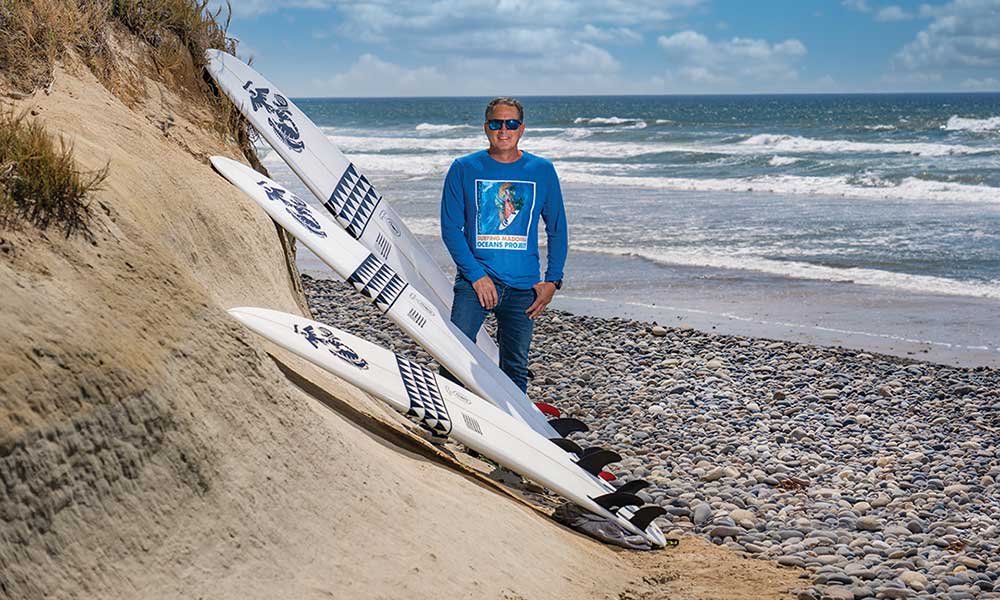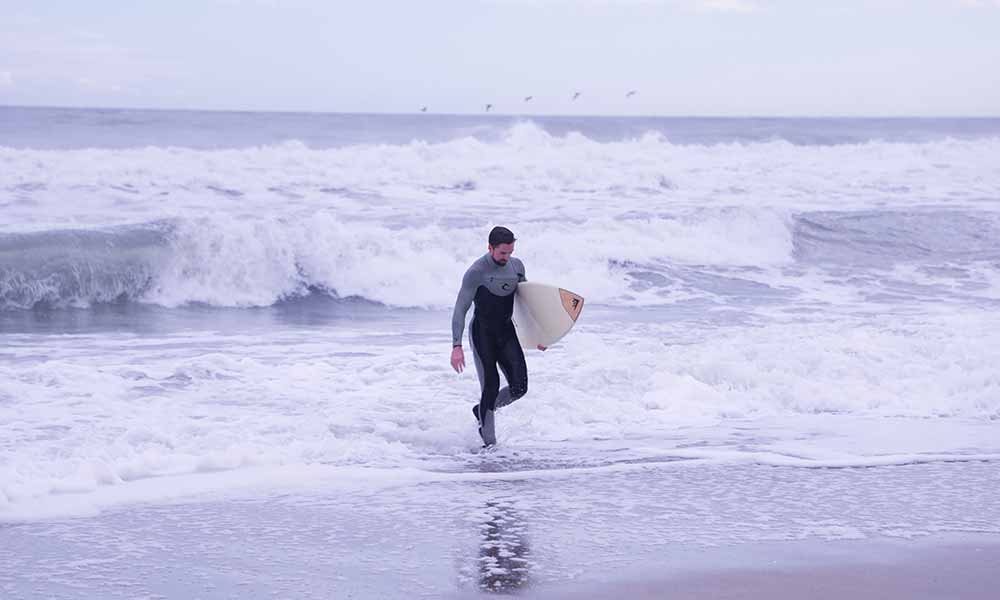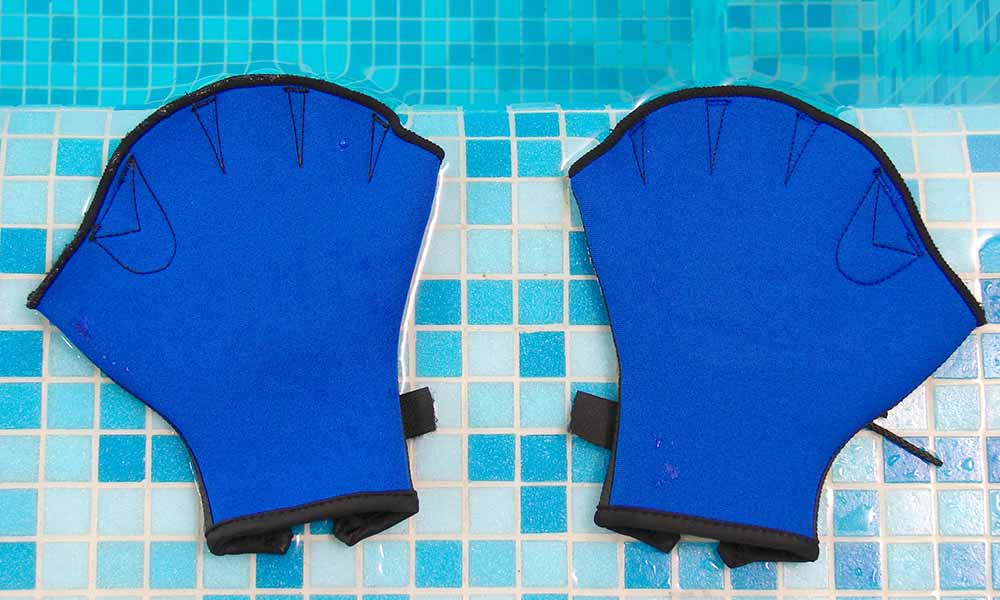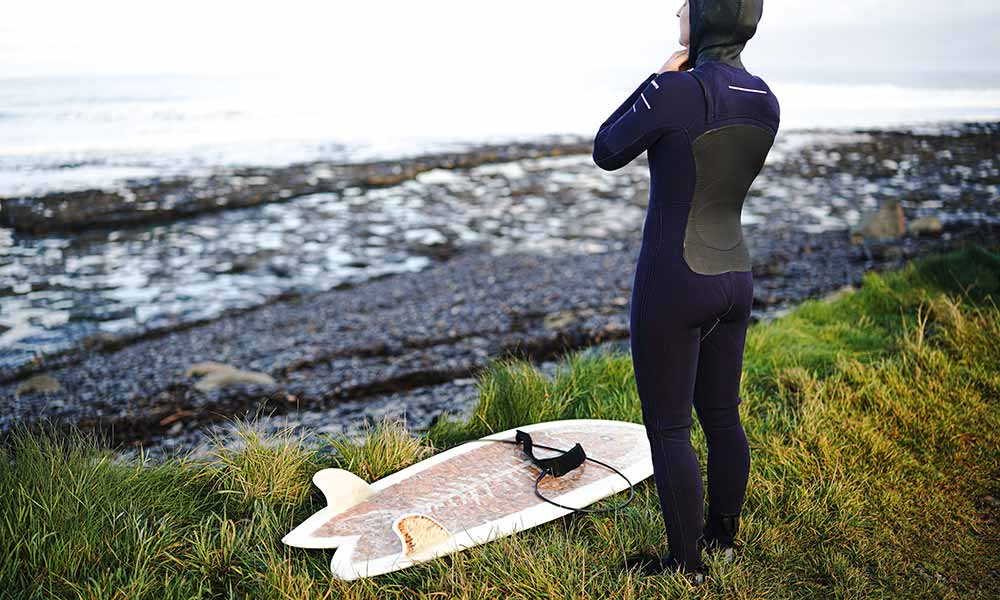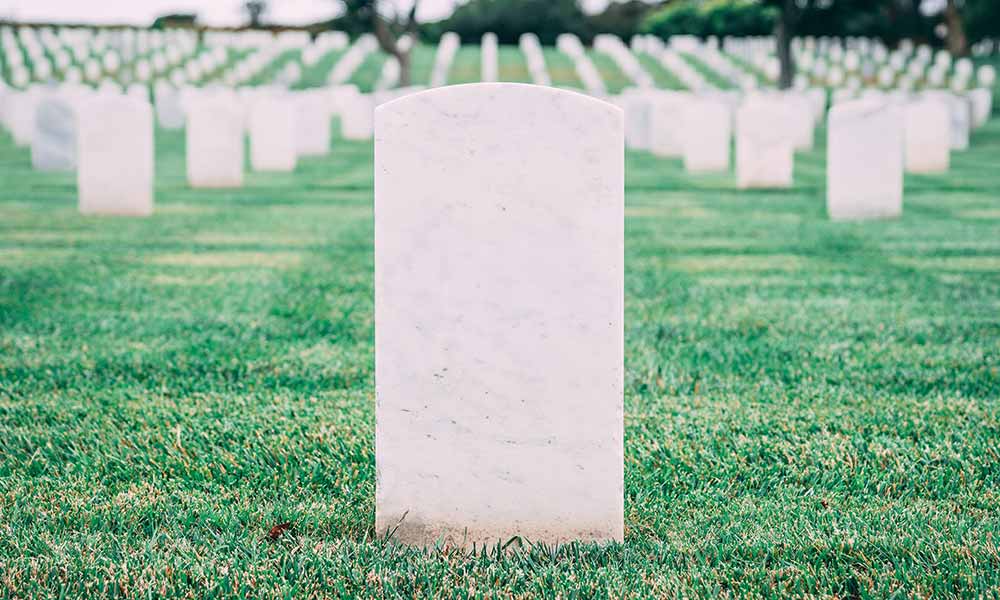We sat down with Eric Franklin to chat about surfing, the Marines and The Pendleton Surf Club. He’s the president of The Pendleton Surf Club.
The Grom Life:
How did The Pendleton Surf Club get started? Was there an inspiration? Why did it all begin?
Eric:
When I joined the Marine Corps in 1993, I was surfing in Florida and I joined the Marine Corps to actually come to California to surf. So I ended up meeting a couple of my buddies … Well, being in the Marine Corps and ended up where I ended up living, I frequented Churches in San Clemente, so I ended up meeting a lot of buddies that were in the Marine Corps as well.
And we just started as a small band of five or six of us, and then it kind of grew from there of trying to get more military people surfing on the base. And then it just grew from there.
We referred to ourselves as a club and then that’s when the internet kind of sprung out. So then we started our own website, we started throwing contests and we just went from there. So it’s been an evolution since 1993.
The Grom Life:
That’s cool. You mentioned contests. Are there other events and activities that the club organizes?
Eric:
We have partnered with Oceanside Long Boarding Club to do events with them, such as the Oceanside 4th of July Parade. The Surfing Madonna Oceans Project, we work with them to do surf camps with kids who have disabilities at the Oceanside Pier in Moonlight Beach in North County. We work with Amp Surf who does clinics for veterans for surfing. And then the Surf Divas is out of La Jolla, we work with them.
They do the VA Summer Sports Clinic every year. That’s where I started out in helping veterans there too. So we just try to help veterans, but also help the community and let them know that, hey, as military active duty and retirees and veterans, we do care by the community, want to still be involved.
The Grom Life:
Got you. So, it started with the Marines, but it’s expanded beyond the Marines and the general population.
Eric:
Correct. Yeah, it involves all the armed branches because we have guys and ladies that are Air Force, Army, Coast Guard, all the branches. And we just get together and enjoy the waves and surfing here in North County San Diego. But also, we have the young people that are active duty, and then you have us retirees and veterans that have two different perspectives. So we try to meet in the middle and explain to the younger people what it takes sometimes.
The Grom Life:
Got you. Yeah. Yeah. So how do you get those new recruits in?
Eric:
One, is through social media. Two, word of mouth. And three, just when I see people in the water that at our local breaks that look like their Marines or in the parking lot, just walk up and talk to them for the most part and try to get to know them, number one. Number two, let them know what we do. And if they’re interested, they get them to come out and just hang out with us. And a lot of times it sticks, sometimes it doesn’t. But they know we’re there and if they ever need anything, they can always call upon us.
The Grom Life:
Yeah, that’s cool. So what advice would you give to a new marine surfer or just a new surfer in general about the culture of surfing, how to get involved, what’s evolved over the years from what you’ve seen or anything that’d be helpful?
Eric:
Well, the good thing is in the military you meet people from all over the United States and sometimes all over the world because people have transplanted and you have immigrants. They come from say Iowa, and they want to get in the water. They want to live that California dream. So we try to, one, give them where to go to get the right equipment. If you’re a beginner, where to go surfing. Where not to go if you’re a beginner because of the level of expertise it may be. Wetsuits, the right board, the right leashes, how to act, like who takes priority on the wave. How to interact with other surfers.
The Grom Life:
Eric:
Etiquette in the just in social. And then just earn your way up. You’re going to take a beating, just don’t quit, keep going, that kind of stuff. And try to partner them up with somebody who knows what they’re doing. And we all kind of go as a group. And then if we don’t go as a group and you end up seeing each other out in the water, you’re kind of like, “Hey, I know you. Can we surf together today?” And we do group texts where we get together too. So just try to help them out and tell them not to quit. It’s kind of like riding a bike, that first you don’t succeed, try, try again.
The Grom Life:
It can be a little frustrating at first.
Eric:
Yeah, yeah, yeah.
The Grom Life:
Yeah, yeah. So some of the lessons for picking up a board, maybe not the smallest board in the shop that someone sees.
Eric:
Yeah. Not everybody’s Kelly Slater or Rob Machado or all these people, they grew up probably watching through TV. You start out and then just trying to coach them into get in the right board for them to start and to get the competence to once they master that one, then you can start shrinking it down. Or if you want to be a longboard or if you want to go down to the shorter board. But yeah, try to find something that’s fun and easier to catch the waves versus sinking in the water and always failing.
The Grom Life:
Right, right. So get a big, big board, something with a lot of float, and then find your style and then find the right board.
Eric:
Then you can grow from there. I mean, you can get your own board shaped like I do. Just whatever fits your body and your aggressiveness or just whatever your breaks are, what you want to do with your life or whatever surfing means to you, that’s what I suggest that you pursue.
The Grom Life:
Be it turns, just cruising, whatever turns out to be your style of surfing.
Eric:
Whatever, yeah.
The Grom Life:
What are some of the future plans for the Camp Pendleton Surf Club event-wise coming up in the summer? What do you have going on?
Eric:
So we’re pretty busy, actually. We’re going to do our own event June 3rd and 4th where it’s all active duty and veteran status. And they also have the adaptive surfing people who have, not special needs, but they have injuries, whether it’s PTSD or physical, going Saturday and Sunday. That Saturday evening, we have a live concert that we’re putting on a aboard the base.
We have the summer clinics for the kids with disabilities at the Oceanside Pier that we’re doing, 4th of July parade. We do our own once a month meetings. And then the VA Summer Sports Clinic is going into the La Jolla Shores June 5th, I believe. It goes for a whole week.
So we stay pretty active. And then in October we’re going to do another contest, active duty, same format at Churches in San Onofre Beach.
The Grom Life:
Very cool.
Eric:
We create opportunities for people to enjoy.
The Grom Life:
That’s very cool. So how can people support you and The Pendleton Surf Club, Eric?
Eric:
Supporting, if you are a veteran, we have membership dues, basically. So if you want to be a member, you can go on our website, pay the dues and know when we’re doing our stuff, get on our email distro list. If you’re active duty, it’s free. You’ll get sign up and you get on our distro list again. And then we publish our events on the website, so you can do that. We have our social media where we publish them. And if you want to get on our group text of where we meet, say we’re going to go meet somewhere to go surf the next day, or people kind of break off and do their own thing depending on where they live and what break is breaking. So we try to keep it low key. Being military, it’s too structured all the time. So as surfers, we got to find a medium where we’re not constantly following the rules. We can go with the flow, like surfing is.

